If you’re a landlord, electrical safety in rental properties should be your top priority. The consequences of unsafe wiring can range from inconvenient to catastrophic – so it’s essential that all landlords understand and adhere to best practices for electrical safety.
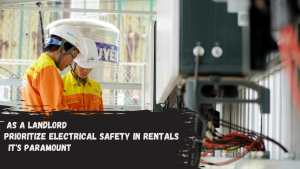
In this article, I’ll provide my top tips for ensuring electrical safety in rental properties. From making sure the right wires are connected correctly to understanding local codes and regulations, these tips will give any landlord the knowledge they need to keep their tenants safe, while also protecting their investment.
Read on to become an expert in electrical safety!
Understanding Local Codes And Regulations
As a landlord, it is essential to understand the local codes and regulations for electrical safety in rental properties. Securing permits and understanding certification requirements are just two of the steps that must be taken in order to ensure compliance with all relevant laws.
The first step towards achieving this goal is getting up-to-date on any changes or updates within your region. These can include new rules regarding installation methods, wiring requirements, equipment standards, etc., so it’s important to stay informed.
Additionally, many jurisdictions have specific procedures for obtaining permits related to electrical work; these should be followed carefully to avoid potential fines or other penalties.
Finally, any necessary certifications should also be completed prior to occupancy. This includes things like inspections by qualified electricians and periodic tests of any safety features such as smoke alarms and surge protectors.
By taking care to meet all applicable legal obligations ahead of time, landlords will not only reduce their risk but also create an atmosphere of trust between themselves and their tenants that benefits both parties over the long term.
Hiring A Qualified Electrician
It is essential for landlords to prioritize electrical safety in their rental properties. According to the National Fire Protection Association, an estimated 49,000 home structure fires that were reported to U.S. fire departments involved some type of electrical failure or malfunction as a contributing factor between 2011 and 2015 alone.
As such, hiring a qualified electrician is one of the most important steps for any landlord looking to ensure long-term electrical safety in their rental property.
At minimum, it’s critical to hire an electrician who holds all necessary licensing requirements within the state they will be working in; this ensures they have received proper training and can work safely on your property.
Other qualifications like experience level and prior customer reviews should also factor into your decision when selecting a suitable electrician.
In addition, make sure you check references from previous clients so you can gain insight into how reliable they are before deciding whether to hire them or not.
The key takeaway here is that while local codes and regulations are incredibly important for ensuring overall electrical safety in your rental property, do not underestimate the importance of hiring a qualified electrician with all relevant licenses and qualifications–this is just as critical for achieving optimal long-term results without compromising your tenants’ safety!
Performing Regular Inspections
When performing regular inspections, it’s important to check all appliances for signs of damage or misuse.
Make sure to inspect wiring for any loose connections or excessive wear, as these can be indicators of a potential safety issue.
I’d also recommend replacing any outdated wiring with modern, up-to-date cables.
Finally, don’t forget to check the fuse box for any faulty wiring or fuses.
Check Appliances
As a landlord, you have an important responsibility to keep your tenants safe and secure. One way you can do this is by performing regular electrical safety inspections of the appliances in your rental properties. Checking regularly for any defects or signs of wear and tear will go a long way towards protecting both your tenant’s safety and your own pocket book.
I strongly recommend that all landlords use certified electricians when conducting their inspections. Certified electricians are experienced professionals who know exactly what to look out for and how to fix any problems they find safely and quickly.
Furthermore, these experts can also provide advice on best practices for keeping up with ongoing maintenance such as checking wiring connections, smoke alarms, circuit breakers, etc.
Regularly inspecting each appliance is one of the key steps landlords should take to ensure electrical safety in their rental property – it’s not something worth cutting corners on! Taking this proactive approach will help protect everyone involved; make sure you don’t neglect it.
Inspect Wiring
Inspecting wiring is an essential part of any electrical safety inspection.
It’s important to check for frayed, worn or damaged wires that could create a dangerous situation and cause fires or other hazards.
Testing methods such as visual inspections, infrared scans and current leakage tests can help identify hidden risks in the wiring system.
Certified electricians are best equipped to conduct these tests due to their expertise with relevant regulations and standards.
They also know how to properly repair any issues they discover while carrying out the inspection.
By performing regular inspections of your rental property’s wiring systems, you can protect yourself from potential electrical risks and keep your tenants safe at the same time.
Let’s take proactive steps now and make sure we don’t neglect this crucial aspect of electrical safety!
Keeping Electrical Panels And Wiring Up To Date
The electrical panel and wiring in rental properties should be kept up to date. This includes meeting all of the local updating requirements, such as those set by the National Electrical Code (NEC).
As a landlord you must make sure that your property is compliant with these standards. Not doing so could result in costly fines or worse if an incident were to occur due to improper wiring.
It’s also important for landlords to ensure that their rental property has regular electrical testing done by certified professionals. Testing will help identify any potential issues before they become major problems.
It’s especially important for older properties where previous repairs or installations may not have been completed correctly or are no longer up-to-date according to current safety regulations.
By having regular inspections, you can rest assured that your tenants will remain safe from electrical hazards. Periodic maintenance on both the electrical panel and wiring is key when it comes to ensuring the safety of your rental property.
Regular checking and updating of components is necessary, even if there appears to be nothing wrong at first glance. Taking care of small issues now can prevent larger ones down the line – saving time, money, and potentially lives!
Installing Ground Fault Circuit Interrupters (Gfcis)
Ground Fault Circuit Interrupters, or GFCIs, are a key component of any electrical safety system. As the name implies, they detect and interrupt ground-fault currents to prevent electrocution in areas where water is present.
Installing them correctly is imperative for landlords who want to ensure their rental properties remain electrically safe. Fortunately, installation shouldn’t be too difficult; all that’s needed is a qualified electrician to install the devices according to local building codes and regulations.
The electrician should also test each device after installation to make sure it functions properly — this testing frequency should be included in the property’s routine maintenance plan as part of ongoing safety compliance.
Finally, proper wiring must be provided between the GFCI outlets so that power can safely flow from one outlet to another without issue. This will help minimize potential trips from faulty wiring connections which could cause an interruption in service or worse yet, create a potentially hazardous situation for tenants living there.
With these simple steps taken care of, landlords can rest assured knowing their rental properties are compliant with electrical safety standards.
Making Sure Outlets Are Securely Fastened
As an electrical safety expert, my advice for landlords to ensure their rental properties are electrically safe is to make sure outlets are securely fastened. It’s important to use the right hardware when connecting and securing any outlet or switch, such as screws and plastic anchors. Installing guards over exposed switches or plugs can also help protect tenants from electric shock.
It’s easy enough to check if your outlets are properly secured; just turn off the power in that area of the house, then unscrew each cover plate and inspect it for damage, loose wires, etc. If you see problems like this, they should be fixed by a professional who is licensed and certified in electrical work.
If everything looks okay but there isn’t much security holding things together, I recommend using additional hardware like mounting plates with self-tapping screws.
In addition, installing childproof guards on all accessible outlets will not only keep your tenant safe from electric shock but also give them peace of mind knowing their family members won’t be at risk either. These devices come in various sizes so you’ll have no problem finding one that fits snugly around whichever outlet needs protecting.
Lastly, never forget: Electrical safety begins with making sure outlets are securely fastened!
Ensuring Outlets, Switches, And Light Fixtures Are Properly Grounded
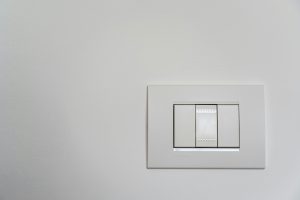
Ensuring Outlets, Switches, and Light Fixtures Are Properly Grounded is a critical part of electrical safety in rental properties. It’s essential that landlords test all outlets, switches, and light fixtures regularly to ensure they are properly grounded according to safety protocols. This should be done even if the property appears to be up-to-date with current standards.
Testing methods vary depending on the type of grounding system installed at the property. For example, testing an outlet may involve using a voltage tester or three prong plug adapter; while testing switches might require checking wiring diagrams or inspecting for overheating components. Regardless of the method used,
it’s important for landlords to make sure these tests are conducted correctly and accurately by qualified professionals who have experience dealing with electrical systems.
In order to prevent any potential hazards from arising due to faulty electrical installations, landlords should also keep records of their tests and inspections so they can refer back to them if necessary.
Additionally, they should stay abreast of any new technologies or updates in industry best practices related to electricity safety in order to ensure their tenants’ well being.
By following these simple steps, landlords can protect themselves from liability issues as well as provide better living spaces for their tenants.
Avoiding Overloading Outlets And Circuit Breakers
As an electrical safety expert, I always recommend avoiding using extension cords in rental properties. This is because they can draw too much electrical current and overload the outlet, leading to a potential fire hazard.
It’s also important for landlords to check their fuse box regularly for any signs of wear or damage, as this can save them from costly repairs caused by an electrical overload.
Finally, landlords should consider installing an Arc Fault Circuit Interrupter (AFCI) to protect their tenants from the danger of electrical fires.
Avoid Using Extension Cords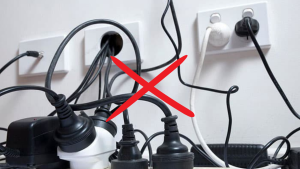
When it comes to avoiding overloading outlets and circuit breakers, one key piece of advice I can offer landlords is to avoid using extension cords.
When a landlord uses an extension cord in place of additional electrical sockets, they are increasing the risk that their rental property will trip due to an overload. Extension cords also contain weak connections which may cause sparks or even fires if not checked regularly for secure connections.
So it’s always best practice for landlords to ensure that their rental property has enough electrical sockets rather than relying on multiple extension cords for appliances and electronics. Whenever possible, landlords should check all connections with a voltage tester before plugging them in order to safely avoid tripping any circuits within the rental property.
By following this simple advice, landlords can help keep their tenants safe by ensuring the proper use and maintenance of electricity in their rental properties.
Check the Fuse Box Regularly
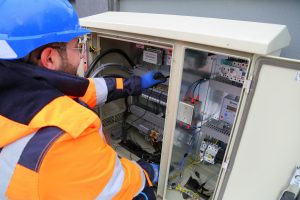
It’s also important for landlords to check their fuse box regularly as part of their maintenance routine. By doing this, they can ensure that all circuits and fuses are in good working order and aren’t at risk of blowing or tripping due to overloading outlets or circuit breakers.
This is especially important if a landlord has appliances running on multiple outlets simultaneously. Testing the equipment with a voltage tester periodically will help guarantee safety for both tenants and property owners alike.
If any problems arise during testing, it’s best practice for landlords to consult an electrician who can assess the situation and replace any faulty fuses quickly and efficiently. Doing so should be a priority as it could potentially prevent fires from occurring in your rental properties by ensuring electrical systems are functioning properly.
Overall, regular inspection of both the wiring system and fuse boxes within rental properties is essential for providing safe living conditions for tenants while protecting landlords from liability issues down the road.
Preventing Water Damage To Electrical Components
As an electrical safety expert, it is important for landlords to take measures to prevent water damage from occurring in their rental properties. Water and electricity do not mix, so if any of the wiring or components become wet, there can be serious repercussions.
To minimize the risk of these problems arising, here are a few tips:
- Utilize waterproofing materials when installing outlets and other fixtures near areas that may come into contact with moisture (e.g., bathrooms). This includes using weatherproof covers on exterior outlets as well as sealing cracks around switches and plugs where water could enter.
- Ensure all appliances such as refrigerators, dishwashers and washing machines are installed correctly per manufacturer’s instructions – this will help to reduce the possibility of leaks which could lead to shorts in the electrical circuits. Additionally, check regularly for signs of wear or deterioration that could create points of entry for water.
- Be sure to inspect all plumbing connections within the property at least once a year for potential issues like corrosion or loose fittings that could cause slow leaks over time. If necessary, hire a professional plumber who can use quality products and techniques designed specifically for preventing water damage from entering your rental property’s electrical system.
Taking proactive steps now can save you thousands later down the road!
Providing Adequate Lighting And Ventilation
Having discussed the importance of protecting electrical components from water damage, it is now necessary to examine how proper illumination and air circulation should be provided in rental properties.
It is essential for landlords to ensure that all areas have been properly lit with adequate lighting fixtures. Not only does this provide a safe environment for tenants, but it also helps reduce energy costs by using efficient light bulbs and automated timers.
Furthermore, proper ventilation should be installed in bathrooms and kitchens which can help reduce mold growth due to excess moisture build-up.
Natural sunlight is an excellent source of illumination; however, providing additional lights around windows or other dark corners may become necessary depending on the property’s layout. Utilizing skylights or solar tubes are great ways to bring natural light indoors while helping keep electricity bills low. Additionally, incorporating dimmers into light switches can give tenants control over their lighting needs and create ambiance when desired.
Ventilation systems play a critical role when it comes to maintaining a healthy living space. Properly functioning fans should be present in most rooms within the home – particularly where moisture levels can reach high concentrations such as bathrooms and laundry rooms.
Fans serve not only as an outlet for damp air but also allow fresh air to circulate throughout the house, reducing potential health hazards caused by poor indoor air quality.
Landlords should make sure these vital appliances are regularly maintained so they continue working correctly and effectively without fail!
must also read this article Top Tips for landlords How To Ensure Your Rental Property Is Fire-Safe.
Frequently Asked Questions
What Is The Best Way To Ensure That Electrical Panels And Wiring Are Up To Date?
Ensuring that electrical panels and wiring are up to date is like building a strong foundation for your rental property: it’s essential.
The most cost effective way to do this is by having an electrician inspect the property regularly, typically every two years.
This allows them to identify any issues before they become a problem, as well as provide tenants with awareness about what their rights are when it comes to electrical safety in the home.
As an expert in electrical safety, I highly recommend investing in regular inspections – not only does it keep everyone safe, but it can save landlords money in the long run too.
Is It Necessary To Hire A Qualified Electrician To Inspect The Property?
It is important to consider the costs and fees associated with hiring a qualified electrician to inspect rental properties.
Electrical inspections can be costly, but they are essential in ensuring that all electrical panels and wiring meet safety standards.
A professional inspection will help landlords avoid unforeseen repair costs in the future, as well as provide peace of mind knowing their tenants’ safety is not compromised by any faulty wiring or other issues.
Taking the small cost upfront for an inspection could save you thousands down the line.
How Often Should Inspections Be Performed?
It is important to ensure safety in rental properties, and electrical inspections are a key part of that.
To guarantee the best level of protection for tenants, it’s recommended that landlords conduct an inspection at least once every three years.
Cost implications should be taken into account when scheduling such tests—but they shouldn’t stop you from doing your due diligence and protecting those in your care.
Of course, tenant awareness plays an important role as well; make sure you provide them with any relevant information about how to use electrics safely during their stay.
What Are The Consequences Of Not Complying With Local Codes And Regulations?
If you’re a landlord who doesn’t comply with local codes and regulations when it comes to electrical safety in rental properties, then you better think twice.
Not only are there potential property liabilities that can come back to haunt you, but tenants have rights too!
Ignorance is no excuse for not being up-to-date on the latest rules and regulations; if your tenant has an accident due to faulty wiring or inadequate grounding, they could sue you into oblivion.
As an electrical safety expert, my number one tip for landlords is to ensure compliance: stay informed of all relevant laws and always keep up with routine inspections.
Your peace of mind (and pocketbook) will thank you later!
Are There Specific Safety Measures That Should Be Taken For Older Properties?
When it comes to ensuring electrical safety in older properties, there are a few key steps that should be taken.
Firstly, landlords should ensure any wiring is up-to-date and consider implementing lighting upgrades if necessary.
Smoke detectors should also be installed throughout the property – this can help reduce the risk of harm caused by fire or smoke inhalation.
Landlords need to comply with local codes and regulations regarding electrical standards, as failure to do so could result in serious consequences.
Conclusion
It is essential for landlords to ensure that their rental properties are electrically safe. By following the right safety guidelines and regularly hiring qualified electricians to inspect electrical panels, wiring, and other components, landlords can help protect tenants from potential danger.
Unfortunately, if these regulations aren’t followed closely enough, there could be serious consequences – such as fires or electrocution.
As an expert in this field, I urge all landlords to take electrical safety very seriously in order to keep their rentals up-to-date and compliant with local codes and regulations.
It’s not worth risking your tenant’s safety!



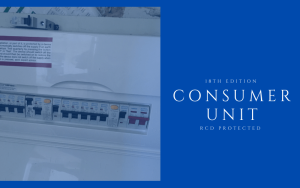

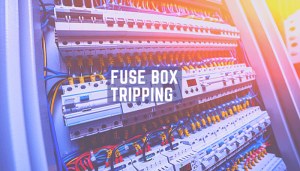
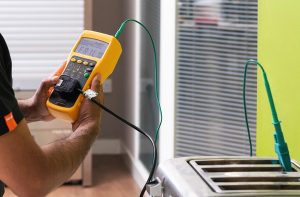
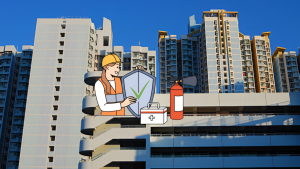
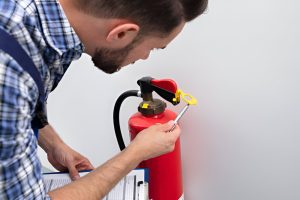
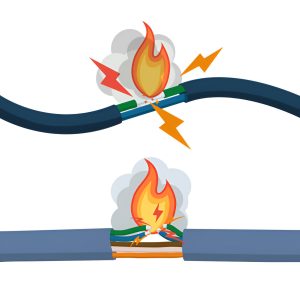

2 thoughts on “Top Tips For Landlords To Ensure Electrical Safety In Rental Properties”
For the purpose of producing a concise summary, the summarising tool begins by extracting several sentences from the text that is being provided and then merging them together. Many of the tools that are available online provide you with the opportunity to choose the size of the generated summary based on either the percentage or the amount of words. summarizing tool
sure thank you